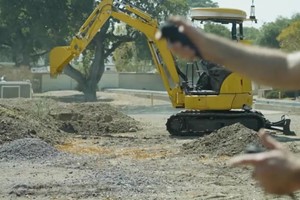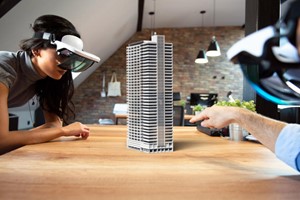Construction companies are incorporating virtual reality as part of their daily workflow to ensure that projects stay on track as construction season continues. Supervisors and inspectors are able to observe job sites in action with virtual reality technology as well as 3D cameras hundreds of miles apart. The only thing they need is an application that works.
What Is a Way of Virtual Reality Can Be Used in The Construction Industry?
It is possible to build new houses with Virtual Reality technology and renovate the old ones through virtual reality. An independent contractor can bring the details of their home addition and remodeling plans to life with 3D models and virtual reality glasses to show prospective clients how it will add value to their property.
How Can Virtual Reality Help Construction Engineers?
Safety is a responsibility that they carry out. Truthfully, the traditional method of reading construction plans is a slow process. Engineers may use virtual reality (VR) to travel around a construction project looking inside a structure, with 3D plans, as if they were inside.
What Is a Wave Virtual Reality Can Be Used in The Construction Industry?
Create Virtual Reality based simulation that puts Trainee construction workers in realistic danger situations, away from real-world risks. As a result, they will learn how to handle tools and cope with workplace issues.
How Can Virtual Reality Be Used in Architecture?
When architects experience the real world of actually being inside of a building, they can articulate design intent more clearly. Those who are unable to see the scale of a 2D rendering can respond pleasantly to immersive VR as they could with physical architecture.
Can A Construction Be Virtual?
When the right modelling system is used and good data is available, construction companies can design fully immersive virtual models of construction projects, regardless of stage. Within the next decade, virtual reality will play a crucial role in the construction business.
Do Architects Use Virtual Reality?
It is possible for architects to predict and understand a building before they are constructed with Virtual Reality (VR). In a 2017 survey of architectural professionals, 70% indicated that they were utilizing VR and adjacent technology to plan. As a result, clients could spend less time meeting and speaking during meetings or presentations using VR technology.
How Did Virtual Reality Help the Engineers?
In addition to giving designers a more accurate depiction, virtual reality also allows for immersive modeling to take place. Design engineers are better able to refine their ideas and create better models when they can observe them from various angles.
What Kind Of Engineer Works On Virtual Reality?
The R&D team at the company employs software engineers in Augmented, Virtual, and Mixed reality products. The team develops new software and develops features to make the disparate XR software work together more effectively. The VR/AR/MR technologies they play a key role with, such as those from Valve, Sony, Samsung, and others.
What Are the Most Important Benefits Of Using Virtual Reality?
- Memory retention has increased, and costs have been reduced.
- Keeping abreast of regulations concerning travel and security.
- Ultra-realistic graphics and high video resolutions.
- A marketing company uses your personal data to target you.
Is Virtual Reality the Future of Architecture?
According to architects, VR and AR are already essential to the creation of objects. Architecture firms and their clients can interact in real-time with these devices to get a feel for the building prior to construction. The future of virtual/augmented reality will only be better – VR and AR have it that way.
How Virtual Reality Benefits the Architects?
The benefits of VR can be further enhanced for architects through the consumer and customer enthusiasm that comes with it.
Virtual reality is extremely beneficial, as it allows students to better see what is happening on the ground, as well as allow them to grasp space – even in movies – much more clearly and concisely.














